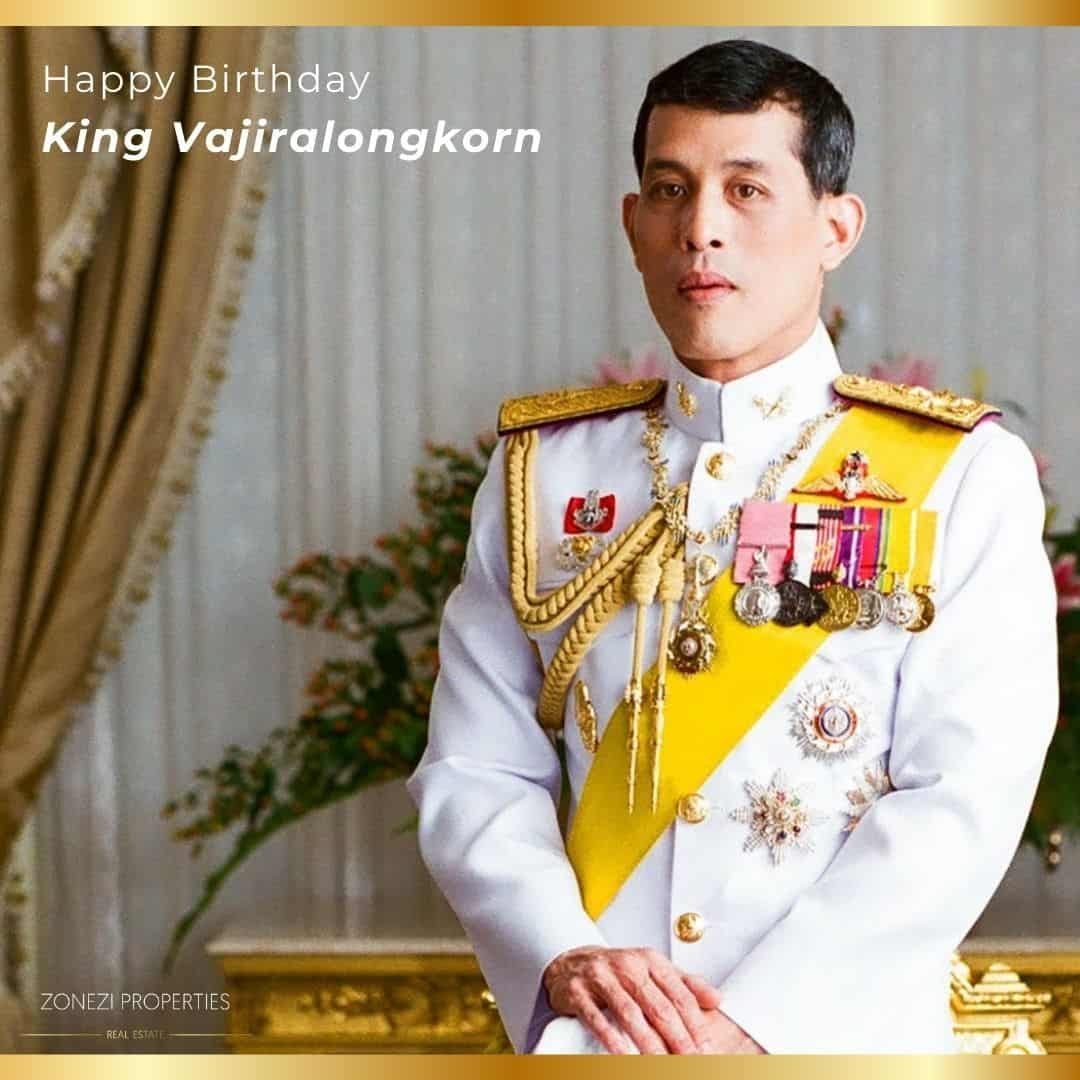Maha Vajiralongkorn, also known as King Rama X, was born on July 28, 1952. He became the king of Thailand following his late father, King Bhumibol Adulyadej (Rama IX), in October 2016.
The birthday of King Maha Vajiralongkorn, or King Rama X, on July 28 is a significant occasion in Thailand, marked by various celebrations and traditions that reflect the deep respect and reverence Thai people have for their monarchy.
Celebrations
- Public Holiday: King Vajiralongkorn’s birthday is a national public holiday in Thailand. Government offices, businesses, and many schools are closed for the day.
- Ceremonial Events: On the King’s birthday, there are often formal ceremonies and rituals. These can include religious ceremonies at temples, where prayers are offered for the King’s health and longevity.
- Royal Activities: The King may attend or host various events, including public appearances and gatherings with dignitaries. These events are often covered extensively by the media.
- Public Displays of Respect: Many Thais display portraits of the King and the Royal Family, often decorated with flowers and lights. Buildings, homes, and streets are sometimes adorned with flags and banners featuring images of the King.
- Charitable Activities: There is often a focus on charitable acts and community service. Various charitable events and donations are organized to honor the King’s contributions to society.
- Cultural Performances: Special cultural performances, such as traditional Thai dances, music, and ceremonies, may be held to celebrate the occasion.
Traditions and Significance
- Monarchical Reverence: The monarchy holds a central place in Thai society and culture. Celebrating the King’s birthday is a way for Thais to express their loyalty and respect. The King is viewed as a unifying figure and a symbol of national identity.
- Religious and Spiritual Aspects: The King’s birthday is often associated with religious and spiritual observances. Many Thais visit temples to make merit and pray for the King’s well-being. The day also involves merit-making activities such as giving alms to monks.
- Civic Pride: The celebration fosters a sense of national pride and unity. It’s a time for Thais to come together and celebrate their cultural heritage and the role of the monarchy in their nation’s history.
- Public Appreciation: The King’s birthday serves as an opportunity for the public to show appreciation for his role in guiding the country. It reinforces the connection between the monarchy and the people.




